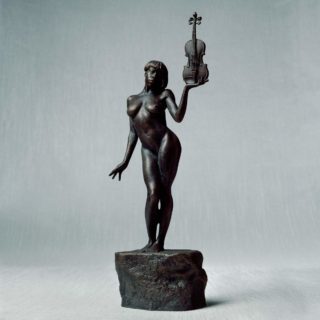Sudan Archives
Athena
7/10

7/10
The violin probably isn’t the instrument you first associate with hip-hop-infused RnB, or indeed with pop music in general, but that hasn’t stopped Cincinnati-born, LA-based Sudan Archives (Brittney Parks to her mum) anchoring her debut album around it. But this isn’t the sort of polite, precise violin playing cultivated by music conservatories – indeed, it’s almost the opposite: Parks is self-taught, by ear, from recordings of northeast African desert-folk fiddle, all visceral and feral scraping, plucks and expressive swoops, full of playing techniques that would get you a fail in your Grade 3.
Crucially, though, despite being unexpected, it’s a juxtaposition that works. On ‘Down On Me’, delicate plucked strings offset low-end throbs of synth bass, Parks slipping her sweetly sing-song, yearning vocal gracefully in between. Equally, on opener ‘Did Ya Know’, a pleasingly unvarnished violin riff complements the minimalist beats, leaving something that feels simultaneously accomplished and unshowy.
Elsewhere, however, Parks isn’t afraid to leave the violin and write a straight-up pop melody: ‘Iceland Moss’ has the kind of chorus that breaks into your internal jukebox, changes the locks and declares unilateral ownership after a single listen, and the same goes for ‘Limitless’, a bittersweet 3-minute epic that’s set around infectiously moreish rising chords.
Athena isn’t a perfect album by any stretch – there’s frequently too much haze and lack of definition to the songs, and Parks’ clear compositional skill often seems undermined by her lack of self-confidence in delivery, leaving several tracks tantalisingly just short of greatness. Two forty-second vignettes, too, suggest that Parks has perhaps more ambition for the abstract than the rest of the album lets on. However, it’s a record unusual enough to be increasingly intriguing over repeated listens as you try and unpick quite what Parks is trying to say, and – perhaps the more pertinent question here – the unique way she’s trying to say it. And for now, that feels enough: it leaves Athena as a marker, a sort of statement of intent and demonstration of pleasingly original thinking, and a warning of what might be yet to come.